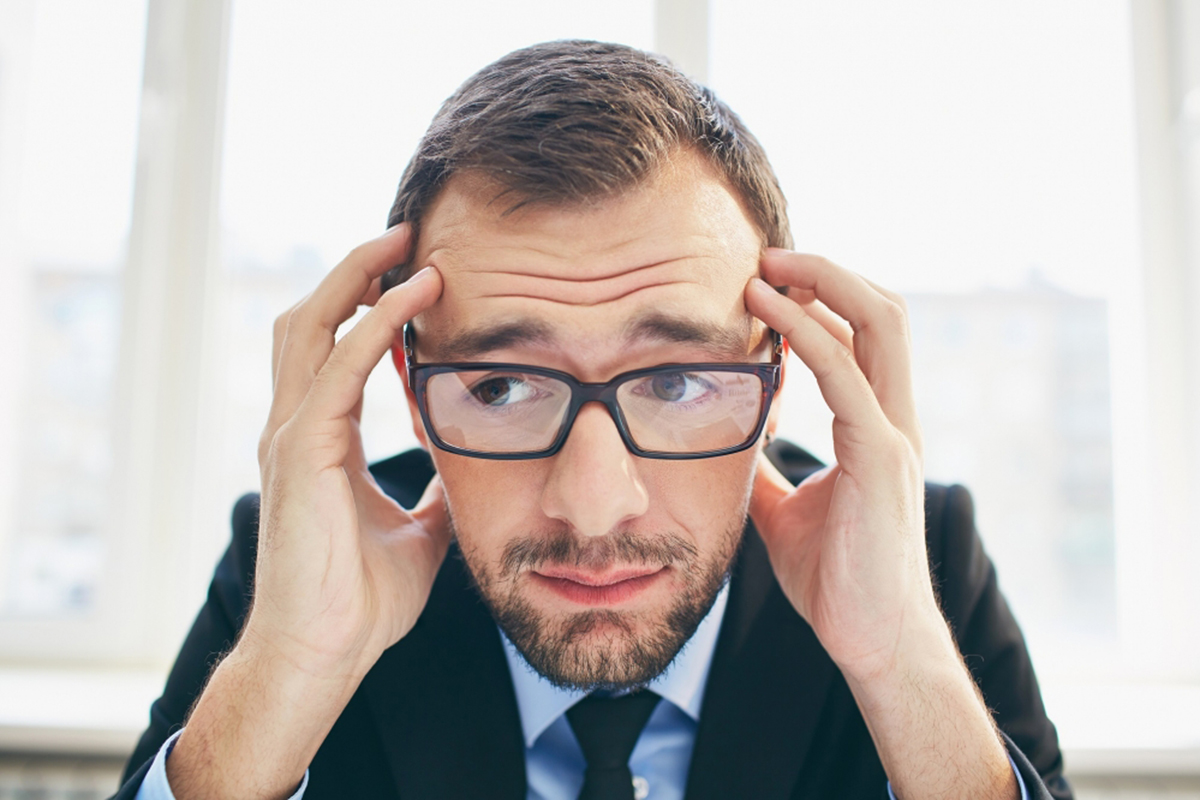Table of Contents
Trigger 6: Dehydration
Not drinking enough water has been found to lead to migraine in up to 40% of migraineurs. To avoid this, drink eight glasses of water a day (just avoid fizzy drinks with aspartame, if that's a trigger for you).
Trigger 7: Caffeine
Caffeine's a tricky beast. A little at the onset of migraine can be helpful. However, too much caffeine can act as a trigger for migraines. Also, having a large amount of caffeine one day and then less caffeine the next can cause caffeine withdrawal and trigger a migraine.

Trigger 8: Strong smells
Migraineurs report that strong or strange smells, especially perfume, are a trigger for migraine. Additionally, almost half of patients experience "osmophobia", intolerance for strong smells (especially perfume, cigarette smoke, or strong food scents), during migraine.
Trigger 9: Exercise
A 2013 study by Koppen and Veldhoven found that 38% of migraineurs experience exercise-related migraine, particularly after intense exercise. They also found that exercise-related migraine was distinct, featuring a higher-incidence of neck pain.
Trigger 10: Bright Light
Bright artificial lights, flickering lights, and strobe lights are known triggers of migraine. There's some question over whether sunlight alone can cause migraine. A 2014 study by Sethi, published in the journal European Neurology, opines that sunlight can only cause migraine in people who are already sleep deprived, stressed or dehydrated. However, a 2013 study by Tekatas and Mungen suggested that sunlight alone can trigger a migraine.
To combat this, try wearing a hat and sunglasses when you go out.
Trigger 11: Weather
Several types of weather are common migraine triggers:
- Storms
- High winds
- Changes in temperatures
- Changes in humidity
- Changes in altitude
- Dry and/or dusty environments
It's thought that migraineurs are more sensitive, and feel pressure changes more acutely. Also, it's thought that there's an evolutionary benefit to weather-triggered migraines: compelling the migraineur to seek a less hostile environment.
READ Does Weather Affect Our Mood?
Trigger 12: Alcohol
Alcohol can cause migraines for a number of reasons. First, it can cause dilation of the vessels in your head, which may cause headache. Second it's a diuretic, which leads to an imbalance of salts and can cause dehydration (another cause of migraines). Red wine may be a particular trigger because it's particularly high in tyramine.
Trigger 13: The computer screen
Working in front of screens for a long time is a big problem for migraineurs. A mixture of lights, eye-strain and stress leave those of us who use computers and screens a lot for work and recreation at high risk of migraine.
If screens are a trigger use anti-glare screens, take regular breaks (try a weekend digital detox), and make sure to use a computer in a well-lit room.
Trigger 14: Irregular Sleep
Insufficient sleep, or disturbed sleep (such as with jet-lag) has been found to trigger migraine. However, as little as half an hour extra sleep - such as at the weekend - has also been found to act as a trigger. Keeping regular sleep habits could be one of the best things you can do for yourself.
READ Weird Ways to Beat Insomnia
Trigger 15: Physical problems
There are several problems that may trigger migraines:
- Tooth grinding: If you grind your teeth in your sleep, it may cause headache upon waking. If this is a trigger, see a dentist, who can fit you for dental splints to prevent grinding, relieving the problem.
- Head injury: Sometimes migraines start after receiving a head injury
- Coughing: A violent coughing fit can trigger migraine in some.
Trigger 16: Illicit Drugs
Cocaine and marijuana use can act as migraine triggers. Cocaine withdrawal can also cause migraines.
Trigger 17: Medication overuse headache
If you regularly use opioids, ergots or triptans as a treatment for migraine, you may develop medication overuse headache. Overuse of triptans or opiates is deemed to be ten days or more per month. It happens, quite simply, due to a wish to control chronic and pervasive pain. But the effectiveness wears off quicker, leading to a background, rebound headache, which is then treated with more painkiller. The migraineur is now trapped in a vicious cycle.
As the Migraine Trust says:
[Medication overuse headaches] have nothing to do with addiction, and everything to do with trying to cope.
Making Changes
When you've identified your triggers, it's time to make the necessary lifestyle changes. What do you have to do?
- What changes can you make on your own?
- Do you have to change your diet?
- Do you have to put an anti-glare screen on your computer?
- Should you practice meditation for stress?
- What changes will require more support?
- Do you need to talk to your doctor about a migraine preventative?
- Do you need to talk to your employer about altering your work schedule so you can spend less time looking at the screen?
Aim to have a healthy lifestyle, with a balanced diet and plenty of fluid; sensible, gentle exercise, and appropriate rest. Just these simple changes will greatly improve your health, leaving you better able to cope with your migraines.
- www.migrainetrust.org/about-migraine/trigger-factors/what-is-a-trigger
- www.migrainetrust.org/about-migraine/trigger-factors/hypoglycaemia
- www.migrainetrust.org/about-migraine/types-of-migraine/other-headache-disorders/medication-overuse-headache
- www.headaches.org/2007/10/25/tyramine
- www.headaches.org/2007/10/25/alcohol-and-headaches
- www.headaches.org/2007/10/25/caffeine
- www.headaches.org/2007/10/25/menstrual-migraine
- www.headaches.org/2007/10/25/stress
- www.headaches.org/2007/10/25/monosodium-glutamate-msg
- www.headaches.org/2007/10/25/nitritesnitrates
- www.headaches.org/2007/10/25/low-tyramine-diet-for-migraine
- www.mayoclinic.org/diseases-conditions/depression/expert-answers/maois/faq-20058035
- www.webmd.com/migraines-headaches/headache-and-migraine-trigger-weather
- www.webmd.com/migraines-headaches/stop-frequent-migraines-5/migraine-triggers
- blog.themigrainereliefcenter.com/migraines-triggered-by-screens-and-how-to-deal-with-them
- www.healthline.com/health/migraine/triggers
- www.ncbi.nlm.nih.gov/pmc/articles/PMC3880028
- www.karger.com/Article/FullText/356342
- www.karger.com/Article/FullText/354165
- www.em-consulte.com/article/808504/alertePM
- www.nationalmigrainecentre.org.uk/migraine-and-headaches/migraine-and-headache-factsheets/migraine-triggers
- www.nejm.org/doi/full/10.1056/NEJM198711053171903
- www.headaches.org/2009/09/15/readers-mail-is-aspartame-a-migraine-trigger-2/#more-1984
- www.health.harvard.edu/blog/food-and-migraine-a-personal-connection-201104052222
- Infographic by SteadyHealth.com
- Photo courtesy of freepik.com
- Photo courtesy of freepik.com


Your thoughts on this